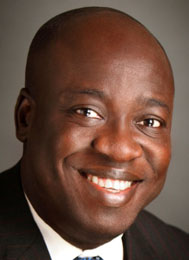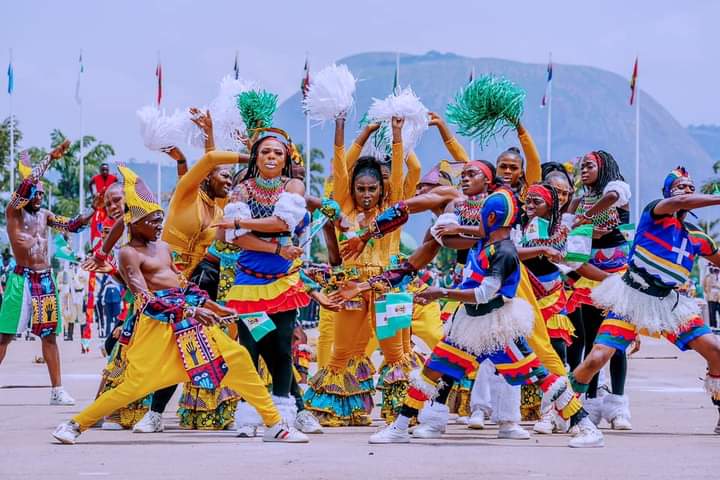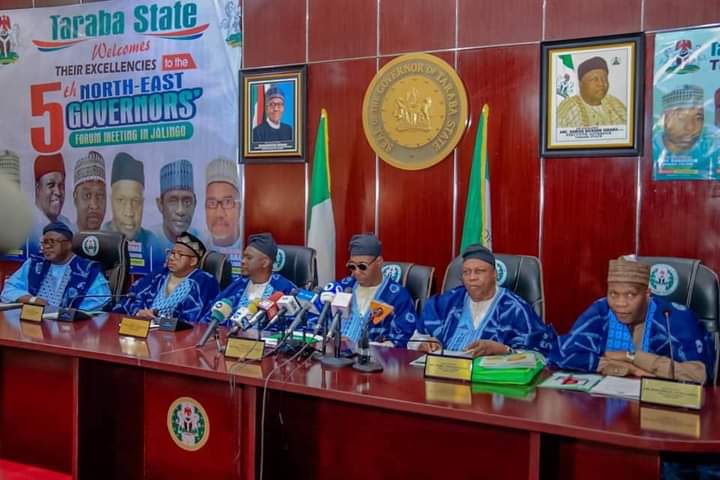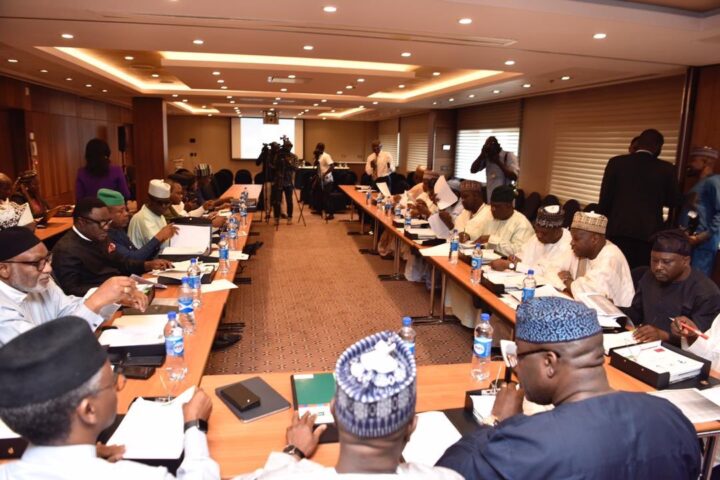Around March last year, someone showed me a satellite image of the Atlantic Ocean clogged with vessels of different sizes and colours. What I saw looked more like a traffic gridlock as the vessels did not appear to be moving in any direction. I was told that most of those vessels were carrying Nigerian crude that no one was interested in buying even on credit as the COVID-19 pandemic shut down the global economic machines.
Although crude oil constitutes only 20 per cent of Nigeria’s GDP, it accounts for more than 80 per cent of its revenue and 90 per cent of its foreign exchange earnings. Perhaps, nothing could have demonstrated more starkly the vulnerability of Nigeria’s economy than the pandemic. Within days, analysts have started to see the possibility of a Venezuela or Zimbabwe kind of collapse. They probably exaggerated, but if the shut-down had gone on for a while longer than it did, it was clear where we were headed.
Mercifully, the world recovered more quickly than was feared and the price of oil in the international market has rebounded once again. From the near zero at the time of the lock down last year, it now hovers around $80 per barrel this week. Historically, Nigeria’s economy has been precariously tied to the cycle of boom and burst of global oil prices. We have been through many of such cycles and could therefore be tempted to think that we only have to wait out any such price collapse in the future.
However, what happened last year appeared to be some kind of premonition of the end of end of the oil age, more than anything else. Many other oil dependent countries could hear the alarm clearly and they have gone busy thinking of ways to accelerate their plans for an alternative economy. It is becoming increasingly clear that beyond the vagaries of the global oil market is the stark reality that the need for fossil fuel will continue to decline and will ultimately disappear as mankind continue to find more efficient and more sustainable means of production.
Advertisement
Even as we speak, perhaps the biggest threat to Nigeria’s crude oil economy is the development of shale oil technology in the United States, which used to be one of Nigeria’s largest oil market. Hailed as the “most important innovation of the 21st Century” by the Financial Times in 2015, the world’s reserve of shale oil is estimated at 425 billion barrels, held by only 11 countries, and currently constitutes 36% of US oil reserve. Many have argued that shale oil will not replace crude as a new form of fossil fuel. However, US oil imports from Nigeria has steadily declined in the last few years, demonstrating that the world’s largest economy is clearly losing its appetite for Nigerian oil. We should think that it is only a matter of time before other countries also find alternative sources or alternative means.
This has even greater significance beyond petro-dollars. Over the years, the United States’ most important strategic interest in Nigeria has been its oil. The less America needs Nigerian oil, the less important Nigeria is, not only to America, but to other countries as well whose main interest in Nigeria is its oil. The question therefore is that if you take oil out of Nigeria, what else does Nigeria have to offer the rest of the world that would make the world to really care about Nigeria?
The argument here is that our vision of development can no longer be built on our oil export, even if it were not so dangerously exposed to the whims of the international commodity market.
Advertisement
It is interesting to note that in terms of dreaming big dreams and devising grand visions, Nigeria is way ahead of many other countries. Long before the pandemic or even the 2015 economic downturn, Nigeria had conceived the vision 20:2020, which planned to make Nigeria one of the top 20 economies of the world by 2020. NV2020 was conceived as an economic development plan to build “a large, strong, diversified, sustainable and competitive economy that effectively harnesses the talents and energies of its people and responsibly exploits its natural endowments to guarantee a high standard of living and quality of life to its citizens.” The vision document expressly stated that Nigeria would “pursue a structural transformation of the economy from a mono-product to a diversified and industrialised economy” and move from low productivity activities like primary agriculture to higher productivity activities like manufacturing and services.
The transformation agenda that followed was not less remarkable in its vision to build a more resilient and sustainable economy. Therefore, Nigeria is not short on vision. What we appear to lack is the willingness and the courage to take the radical measures that are required to change the fundamentals of our economy. While we are capable of developing radical visions and dreaming big dreams, we have continued to prefer the business-as-usual approach, which at best have yielded few marginal gains, whereas what we need is bold strategy for a quantum leap.
After Nigeria first rebased its economy in 2013, the GDP rose from $270 billion to $510 billion to become the largest economy in Africa, and push our share of the sub-Saharan Africa’s GDP from 21.3 per cent to 31.7 per cent. On-going efforts to bring the informal sector into greater focus would reveal even a much bigger economy. However, like Joseph Stiglitz and some other top economists have argued, GDP is not enough in capturing the totality of human experience within a nation’s economy.
Perhaps, no one knows this better than a Nigerian. How can a country have the largest GDP on the continent and still be home to the largest number of people living in absolute poverty? 83 million people, or about half of our population live below the nation’s poverty line of N137, 430 per day or N11, 450 per month. It is also reported that out of about 70 million people that make up Nigeria’s labour force, more than 24 million are without employment, representing about 33%. If we disaggregate these numbers, we will find that the youth unemployment situation is even much worse. What this goes to show is that it is perfectly possible for Nigerian economy to continue to grow, while leaving majority of Nigerians behind and in poverty. The implications of this for social cohesion and long-term stability of the country is better left to imagination.
Advertisement
However, as long as oil remains the basis of the Nigerian economy, the prosperity of this nation will be enjoyed only by a few people who are connected to the oil economy. An economy that excludes the majority of its people from its source of wealth can never lead to real development. It is no surprising that Nigeria is not only home to the largest number of poor people, it is also the country with one of the highest income inequality in the world. The direct implication of unchecked inequality is that government loses its moral authority as the majority of the people grow cynical and resentful of those in power, or anyone who simply looks better than them. The danger in this is that once the political elite loses its credibility, it also loses its capacity to mobilise the people for any form of economic or social transformation. This trust deficit is perhaps the major reason government has found it impossible to mobilise the people for the great sacrifices that are required from every citizen if we must realise our vision of a better Nigeria that works for everyone.
Successive Nigerian government has continued to celebrate economic growth. Only yesterday, President Buhari told us how we have recovered from recession to actually achieve a 0.11% growth in Q4 of 2020 and a 5.01% growth in Q2 of 2021. But what does this even mean to millions of young Nigerians who are not able to find jobs? An economy that is not able to create jobs for the people, especially the youths, will not improve livelihood for the majority. A 2018 PwC report estimated Nigeria’s average job growth between 2010-2017 at 1.6% while the labour force grew at 3.9% over the same period. New businesses have emerged in-between, but these are not leading to new jobs. As the report noted, the bulk of the jobs created between 2013 and 2016, up to 63%, are in the informal sector, with most of them being low productivity work that do not eliminate the need for formal-sector work.
Quite importantly, attempt to disaggregate the data on youth unemployment has revealed that majority of the youths who are out of jobs, 80% by one estimate, do not have more than secondary education. This is a peculiar problem that Nigeria must address. How do you bring over 25million young people who have had little or no education into jobs? The traditional informal skills sectors are already in crisis with many at risk of losing their livelihood forever, unless we make deliberate efforts to upgrade their skills and bring them in line with developments in modern technology. This makes a strong case for formalization of artisanal trainings, and more importantly, the development of a National Vocational and Professional Qualification Standards.
The NVPQS will not only accelerate the ability of our skilled workers to access international markets, but it would also set explicit standards for certification based on competence and skill levels. What Nigeria has more than most countries of the world is her huge population, estimated to exceed 400 million people by 2050. It is quite unlikely that this will slow down any time soon. However, with the right investments, we can turn this potential liability, which some have described as a time bomb, into a great asset and make our people our biggest export over the next generation.
Advertisement
In 2018, Nigeria earned approximately $32 billion from oil and gas. Going by available reports and estimates, in the same period, Nigeria was reported to have earned up to $25 billion from remittances alone, with a projection that the figures could rise to $34 billion by 2023. Given the lack of transparency around remittances, it is quite possible that Nigerians working abroad actually sent more money home that year than was officially recorded. In 2019, India topped the table of remittance recipient countries with $83 billion, more than two and half times what Nigeria earned from oil in the same year. India is followed by China (68.4 billion), Mexico (38.5 billion), the Philippines (35.2 billion), and the Egypt (26.8 billion). Therefore, a nationally backed policy of skills exportation by Nigeria will ultimately serve the country better in the long run, both in terms of fiscal diversification and in developing global level competence for the local economy.
We have spent the last 20 years or so chasing enrolment into basic education. We may still have 13 million children out of school, but we have had more children attending schools since the lunch of the UBE than at any other time in our history. However, no country has developed on the back of its basic education alone. The quality of a nation’s workforce is determined by the quality of its higher education. This is why a nation’s higher education system naturally reflects a nation’s vision of development and the kind of society they want to build.
Advertisement
The obvious problem with our post-secondary education system is that because of its very narrow structure, it leaves secondary school leavers with very limited options which is becoming increasingly irrelevant to the emerging economy and the kind of jobs that are being generated by them. The universities or the polytechnics are no longer able to deliver the kind of skills that the major job drivers in our economy require, most of which do not even need a university degree. I feel very pained to see young people waste their time studying courses that they are neither interested in nor relevant to their career goal or even the simple desire to get a job and earn a living.
Across our country today, hundreds of thousands of our youths are trapped in this cycle of irrelevance, wasting the best years of their youths studying “what JAMB gave me” rather than doing what they need to do to be useful economic agents. We need to broaden the options for young people by creating alternative career path based on formalized trainings on vocations that also connects back to our higher institutions. It is about time that we started to ask questions about returns on public investments on our higher education. If we were able to ask this question right now, we would realise that even though we continue to wallow in the delusion of tuition-free public universities, in reality the cost is indeed prohibitive in terms of wasted time and wasted resources relative to the actual returns on investments to the individual student and to the Nigerian nation who paradoxically is paying so much to issue young people with certificates of entitlements to jobs that are no longer available.
Advertisement
It is time for us to change course. If we do not fix our education system generally, and our post-secondary education system in particular, we will not build the kind of country that we want for ourselves and for our children. As long as our country remains one of the countries of the world where parents got education that worked better for them than it has worked for their children, we will continue to sound hollow, if not downright hypocritical to continue to sell young people on the message of patriotism alone.
Giving the numerous existential challenges that Nigeria has faced, some of which have gotten a lot more complicated in the last decade or so, it has indeed become increasingly difficult to argue to young people why they should continue to believe in Nigeria. Young people are beginning to ask, ‘what is in it for me?’ And we are finding it difficult to provide a clear answer. When we tell young people that they are the leaders of tomorrow, they no longer believe us because they cannot see even a bush path to that leadership pedestal. How can we convince them that there would be some kind of light at the end of the tunnel when all they can see today is naked fire? You ask them to believe in Nigeria, and they want to know which Nigeria you are talking about, the Nigeria that is working for just a privileged few or the one that dishes out hell to young people on a daily basis?
Advertisement
This is indeed a tough time and a tough place to be a young person right now. However, in my study of history and the development of many countries of the world, I have not come across anything to make me think that whatever Nigeria is experiencing at the moment will be permanent; or that any of it is peculiar to Nigeria; or that they are sufficient for us to conclude that Nigeria cannot make it as a country.
The last book I read on this subject was Tim Marshall’s new book, The Power of Geography. I read about Australia and the historical oppression of the aboriginal population, who are still marginalized till this day. I read about Saudi Arabia, a nation, like Nigeria, whose economy has overwhelmingly depended on oil. Faced with 28% youth unemployment and the prospect of a post-oil world, the Kingdom is now caught in a dilemma. Its vision 2030 requires it to undertake difficult reforms, including cutting back on subsidies and getting people to accept the idea of paying tax. If it reforms too quickly, it risks provoking the traditional religious establishments, whose anger can easily feed the separatist Shi’a minority on its Eastern province.
I read about Britain, the mother country. And Marshall has this to say: “Most countries have regional differences, but few are as pronounced over such small areas as those of the United Kingdom.” I found that a little surprising, but as I undertook a train journey from the South Coast to the North recently, I could see the North-South divide that he described more clearly. Not only did I notice that the population thins out as we travel northward, but I could also see the uneven development between the regions. And as if to confirm everything, as we approached Bradford, a girl started to move round the train, distributing a leaflet that asked for money from passengers for her to buy tissues for her four-year old son. What about the language? We like to think of England as homogenous, but it is anything else but. Marshall noted that even over as little as a distance of 50km there are marked differences in dialect. I experienced this personally in Leeds. The United Kingdom, perhaps the greatest colonizer in modern history is faced with its own existential challenges, with the push for Scottish independence threatening the 300-year-old union more than ever before.
I read about Spain, the only country whose national anthem does not have lyrics because they could not agree on the wordings that would satisfy everyone. Since the 17th century, the Catalonians have been wanting to break away from the rest of the country. Although they represent only 16% of the population, they account for 20% of the GDP and a quarter of the country’s exports. The people therefore habour a deep resentment that their money is being used to fund Madrid in the centre of the country.
Tim Marshall conclude this way: “In Europe, we often think that our nations and national identities are fixed…However, [we find that] identification with the state is a fragile concept in countries with several nations, or peoples inside their boundaries. Spain may be one of the oldest European states [500 years], it has always struggled to get its regions to coalesce around the centre.”
What all these suggest to me is that all nations are a work in progress. The work of nation building is never done. The second stanza of our national anthem captures this clearly. “To build a nation where peace and justice shall reign” is an eternal endeavor. Nations and empires take centuries to build. 60 years is retirement age, but in the life of a nation, it is nothing. At 61, Nigeria is a baby country. We can point at countries born at the same time who are doing much better than us. But some children are slow learners. But learn they still do.
We did not chose Nigeria. It was imposed on us. But we did not choose or parents or our children either. And how many countries of the world can we name that did not start as some kind of contraption of warring tribes and nations put together by some people, mostly outsiders. The modern England took many centuries to cobble together, thanks to the Romans, the Anglo-Saxons, the Vikings and later the Normans and other assortments of invaders and colonisers. Any wonder the English language itself is mostly an amalgam or derivations of the languages of these various colonisers.
Nigeria may have been imposed on us, but so were so many other countries who have gone on to build a strong nation despite their differences. Our notion of Nigeria must therefore derive from a deep historical consciousness that fuels an equally deep desire to deliberately build a country out of what providence has imposed on us.
Fellow compatriots, we therefore have to choose which Nigeria we want to see. You may look around at what is happening right now and see a sick man on a death bed. You may also take a second look and see a wayward adolescent suffering from self-inflicted injury as it strives to find its true identity. This second Nigeria is what I see. And I have no doubt in my mind, that someday soon, this frustrating adolescent will outgrow its delinquent ways and embrace is true destiny as the greatest black nation on the planet.
Delivered at the Abuja Policy Roundtable October 2nd
Views expressed by contributors are strictly personal and not of TheCable.
Add a comment







